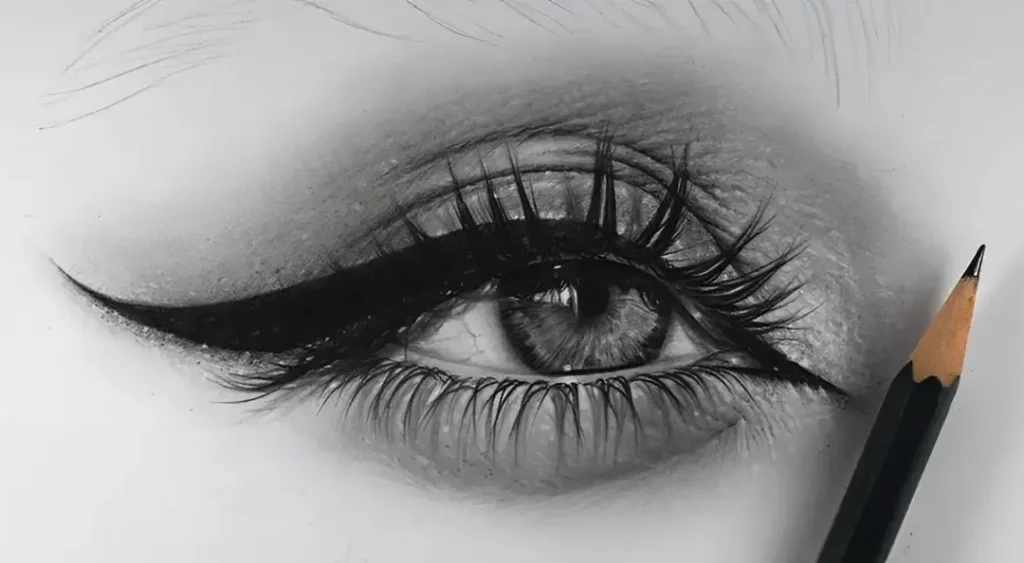Drawing is a timeless art form that allows for personal expression and creativity. Whether you’re a complete novice or looking to refine your skills, learning how to draw can be incredibly rewarding. In this guide, we’ll cover the fundamentals of drawing, providing you with the tools and techniques needed to start your artistic journey. Let’s explore the world of drawing and unlock your creative potential!
Understanding Basic Drawing Tools
To begin your drawing journey, it’s essential to familiarize yourself with basic drawing tools. These tools form the foundation of your art, and choosing the right ones can significantly impact your work.
Pencils
Pencils come in various grades, from hard (H) to soft (B). Hard pencils (e.g., 2H) are great for light lines and detailed work, while soft pencils (e.g., 6B) produce dark, rich lines ideal for shading. For beginners, a range of pencils from H to B can provide versatility in your drawings.
Paper
Choosing the right paper is crucial for achieving the desired effect in your drawings. Sketchbooks are a popular choice for their convenience and variety of paper textures. For detailed work, smooth paper is preferable, whereas rough paper works well for expressive, textured drawings.
Erasers
Kneaded erasers are excellent for gently lifting graphite without damaging the paper. Additionally, a vinyl eraser can provide clean, precise erasures for detailed adjustments.
Other Tools
Blending stumps and tortillons help in smoothing out shading and creating gradients. A sharpener is essential to keep your pencils in optimal condition.
Mastering Fundamental Drawing Techniques
Understanding and practicing basic drawing techniques is crucial for building a solid foundation in drawing.
Line Drawing
Line drawing is the simplest form of drawing, involving the creation of outlines and contours. Practice drawing various types of lines, such as straight, curved, and zigzag lines, to improve your control and precision.
Shading
Shading adds depth and dimension to your drawings. Practice different shading techniques like hatching, cross-hatching, stippling, and blending to achieve realistic textures and gradients.
Perspective
Perspective is essential for creating the illusion of depth and space. Start with basic one-point perspective and gradually progress to more complex two-point and three-point perspectives. Practice drawing simple shapes like cubes and cylinders to understand how perspective affects their appearance.
Developing Your Drawing Style
As you become more comfortable with basic techniques, it’s important to develop your unique drawing style. Experiment with different subjects, techniques, and tools to find what resonates with you.
Observation
Drawing from observation is an excellent way to improve your skills. Study real-life objects, people, and landscapes, paying close attention to details, proportions, and lighting. This practice will enhance your ability to capture the essence of your subjects.
Imagination
Don’t limit yourself to drawing what you see. Let your imagination run wild and create original artworks from your mind. This practice encourages creativity and helps develop your distinctive artistic voice.
Experimentation
Try different mediums, such as charcoal, ink, or digital drawing tools. Experimenting with various techniques and materials can lead to new discoveries and unique styles.
Tips for Continuous Improvement
Becoming proficient in drawing takes time and dedication. Here are some tips to keep you motivated and continually improve your skills.
Practice Regularly
Consistency is key to improvement. Set aside dedicated time each day or week for drawing practice. Even short, regular sessions can lead to significant progress over time.
Seek Feedback
Share your work with others and seek constructive feedback. Joining art communities, both online and offline, can provide valuable insights and encouragement from fellow artists.
Study Other Artists
Analyze the work of artists you admire. Study their techniques, compositions, and use of color. Learning from others can inspire and inform your own artistic development.
Keep a Sketchbook
Maintaining a sketchbook is an excellent way to document your progress and explore new ideas. Use it as a creative journal where you can freely experiment without the pressure of producing a finished piece.
Embrace Mistakes
Mistakes are part of the learning process. Embrace them as opportunities to learn and grow. Don’t be afraid to take risks and try new things, even if they don’t turn out perfectly.
Drawing is a skill that anyone can learn with practice and patience. By understanding basic tools, mastering fundamental techniques, developing your style, and continuously seeking improvement, you can unlock your artistic potential. Remember, every great artist started as a beginner. Keep drawing, stay inspired, and enjoy the creative journey!
FAQS
By following these guidelines, you can create a comprehensive and engaging blog post on “how to draw” that is both informative and SEO-friendly.
